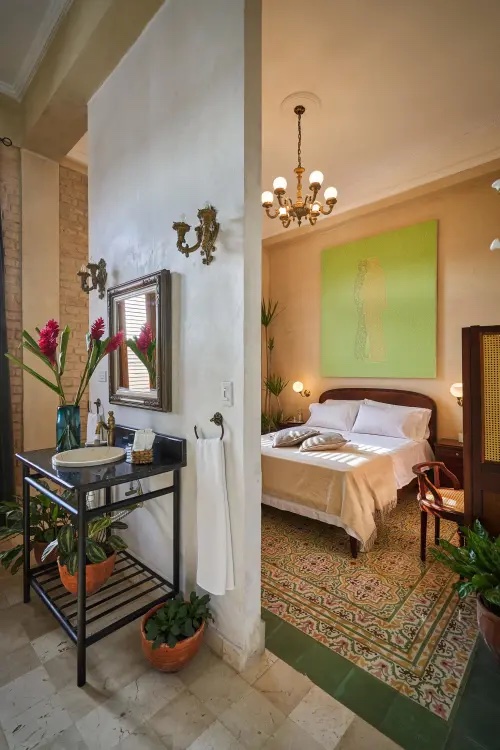Havana’s neighbourhood hotel revival is transforming its hospitality scene
Beautifully restored residences are putting castaway neighbourhoods back on the map in the Cuban capital.
On Sunday mornings, the tinkle of piano keys can be heard on the streets of Havana’s artsy Cayo Hueso district, between the 16th-century Old Havana and Vedado. After the hospitality sector opened up to private and international operators in 2016 (when Cuba’s socialist government relaxed its regulations), a new crop of hotels has been helping to revitalise once-forgotten neighbourhoods for locals and visitors alike.
The source of these particular neighbourhood melodies is the large, high-ceilinged café at the Tribe Caribe hotel, which opened a year ago in a grand, finely restored former apartment building that dates back to the 1920s. In the 1940s and 1950s, it housed one of Havana’s most storied jazz bars.
“It feels like a bit of a miracle that we were able to restore a building so important to the musical history of the neighbourhood,” says co-founder Andrés Levin, a Grammy award-winning Venezuelan-German musician, producer and songwriter who has lived in Havana for almost 30 years. He undertook the hotel’s revival alongside his business partner, Canadian investor and property developer Chris Cornell. Given how young Cuba’s private hotel sector is, Levin adds, the role that hospitality businesses can play in their parts of the city is still in flux. “We wanted to restore the building to the glory of what it once was,” he says. “But we also wanted to create a ripple effect throughout the neighbourhood.” It has begun to draw visitors to a part of the city that was often sidestepped by the million or so people who travel to Havana every year, he tells Monocle.

“We knew that we wanted the hotel’s public spaces to pay homage to the city’s musical and cultural heritage but also to generate opportunities in the neighbourhood,” he says. To do so, a dedicated exhibition space, The Black Box, was incorporated into the ground floor, which hosts performances by emerging Cuban musicians, contemporary art exhibitions and film screenings.
A portion of the revenue from the 11-room hotel, which has been furnished with work by contemporary Cuban artists and antique fixtures and furniture, will be invested nearby. That includes the proposed revitalisation of a historic park and a long-term plan to restore Havana’s international jazz festival and invest in local talent.
“We want this to be a model that can be replicated in other parts of the city,” says Levin. “We hope that other businesses will see what we have done here and take it as a starting point for themselves.”
tribecaribecayohueso.com


